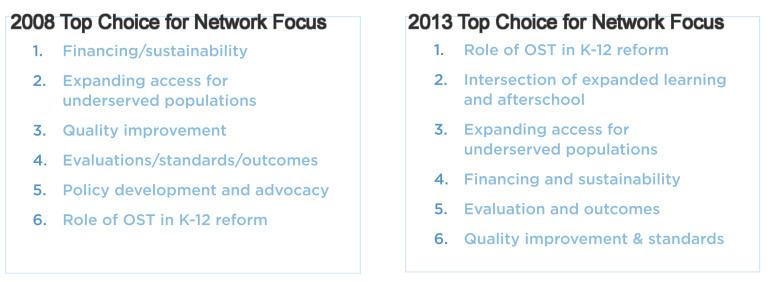
Thinkstock
When grant makers were asked what the OST Funder Network should focus on, they pointed to education reform. The role of OST in K-12 reform has emerged as a new top priority, according to the report.
Foundations that fund out-of-school-time (OST) programs have an increased interest in the relation between OST and school reform efforts, according to a report by Grantmakers for Education.
OST leaders who were interviewed for the report, released in July, suggest funders could have a positive impact on school reform by pushing for a wider view of how young people learn and develop.
Grantmakers for Education, founded in 1995, is the nation’s largest network of philanthropies contributing to education.
Within the organization is a network of grant makers interested in out-of-school-time (OST), said Kathleen Traphagen, coordinator of the Grantmakers for Education’s OST Funder Network.
The report, Grantmakers and Thought Leaders on Out-of-School Time, was created for this network. Research for the report involved a survey of 95 grant makers and interviews with 18 people recognized as “thought leaders” in the field and with nine members of the OST Funder Network Steering Committee.
The top goals of OST grant makers, according to the survey, were to improve academic achievement and increase student engagement.
The top OST activities they reported funding were:
- Science, technology, engineering and math (STEM)
- Art and music
- Literacy enrichment
- College awareness and preparation.
However, “funders are not just making grants for individual after school programs,” Traphagen said. “They’re looking at partnerships.” She pointed to the system-building that has occurred, including the development of citywide organizations and statewide OST networks.
The role of OST in K-12 reform has emerged as a new top priority, according to the report. When grant makers were asked what the OST Funder Network should focus on, they pointed to education reform.

Grantmakers for Education
Funders have become more interested in the role of out-of-school time in school reform. Grant makers surveyed in 2013 said they wanted it to be the top focus of the OST Funder Network. Five years before, they said the top focus should be financing and sustainability of out-of-school time.
Agreement and disagreement
However, the leaders interviewed said that OST’s identity as a field is not clear. They also disagreed on the role of OST in relation to school. Some want OST to remain a space that is different from school — where arts, sports and recreation abound and where kids get a respite from school.
Others want to move OST into a more central role in the school reform debate. Some expressed a desire to get rid of the term “afterschool” and focus on influencing the school day.
They agreed, however, that the OST field has important knowledge about how children learn, and this knowledge should be applied to various settings, whether afterschool, summer or expanded-day programs. They also agreed that the OST goal is to create high-quality learning experiences for children and that local communities should be decision-makers in OST programs.
OST leaders said that many educators are coming to see that the focus on test scores is too narrow.
Their advice to grant makers, according to the report:
- Take a stronger lead in broadening education reform to include wider ideas of how youth learn and develop.
- Support systemic efforts to create high-quality and evidence-based programs.
- Support research and scaling models that show results.
- Aid local, regional and national advocacy and legislative efforts.
- Focus on developing a skilled OST workforce.






























